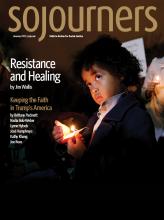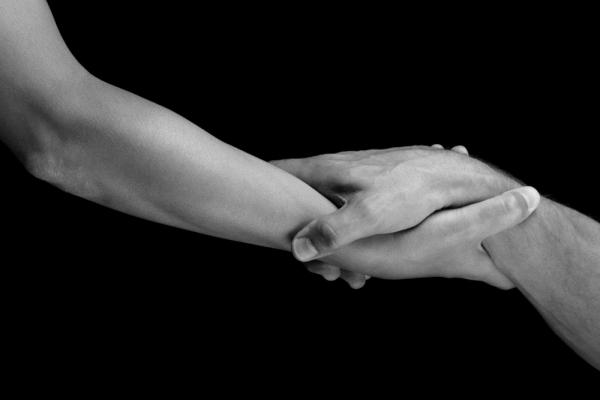WHERE MUST we start as Christians and faithful churches after such a devastating election that brings the most dangerous man to the White House that we have seen in our lifetimes?
First, many people are terribly afraid, because they are from groups who were attacked and targeted in the campaign by the new president-elect. We must take those attacks seriously by reaching out in solidarity and protection to those who are now most vulnerable—undocumented immigrants, black and brown Americans, Muslims, women of all races, and LGBTQ folks. Members of these groups have already experienced ugly incidents of hate and violence, including increased harassment, vandalism, and even assaults on children and others in the wake of the election results. If I read my scriptures right, those are the people that Christians and other people of good conscience should now turn to in solidarity and support. That is what Christians are supposed to do: Support the poor, the vulnerable, and those under attack.
Second, we must make it very clear that honest and prophetic truth-telling about race in America will be needed as never before in our time, especially from white Christians. The fact that a majority of white Americans, at every level of class and gender, voted for a candidate who ran on racial and gender bigotry is even more distressing when we see that a majority of white Christians voted just like other white voters. And it is revealing that those who say this election was not about race are white, while Christians of color see race at the center of it. Repentance by white Christians in America will require the replacement of the white identity politics that dominated this election with faith identity politics.
One of the saddest aspects of the election for me is the fact that most white evangelicals voted for a man whose life has embodied the most sinful and shameful worship of money, sex, and power and who represents the very worst of what American culture has become.
Read the Full Article

